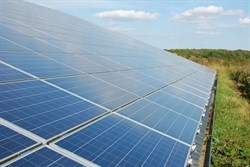
Top stories





Marketing & MediaWarner Bros. was “nice to have” but not at any price, says Netflix
Karabo Ledwaba 2 days

More news

Logistics & Transport
Maersk reroutes sailings around Africa amid Red Sea constraints


















The African views are in contrast with the global view, where high energy price volatility has for the first time replaced climate framework as the top critical uncertainty.
Bonang Mohale, WEC vice-chair Africa, commented at the report launch at the Africa Energy Indaba: "Our African survey finds that, in contrast with the global findings, climate framework has become an even more critical issue. Africa is dramatically vulnerable to climate change, and Africans are becoming more aware that climate change is an urgent and real issue rather than something that only countries with large emissions should worry about."
In Africa, electricity supply remains a critical concern, with growing demand, lack of required investment, and increasing power shortages across the continent. Renewable energy remains a high-priority issue.
As a change from last year's findings, African national governments and regional institutions are taking actions in energy efficiency and regional interconnection, while investment cooperation with China and India is viewed with increasing importance.
The report captures the views of over 800 energy leaders including ministers, chief executives and the heads of the WEC's national members committees covering 84 countries.
In its global findings, climate framework uncertainty is now perceived by energy leaders to have less impact than in the previous three years of the study. Meanwhile, carbon capture, utilisation and storage (CCUS) continues to be viewed as a technology having limited impact.
Energy leaders are also increasingly concerned about the sector's ability to access the capital markets for funds towards energy infrastructure, when set against a continued recessionary backdrop.
Christoph Frei, WEC secretary general, said: "The fact that both climate framework and CCUS are perceived to be issues of less impact is bad news not only in terms of emissions mitigation, but also for the development of robust and resilient energy infrastructure. Our energy systems are in a state of massive expansion and transition, and the signals we see today provide clear evidence of the urgent need for more robust, coherent, long-term frameworks for planning our future investment."